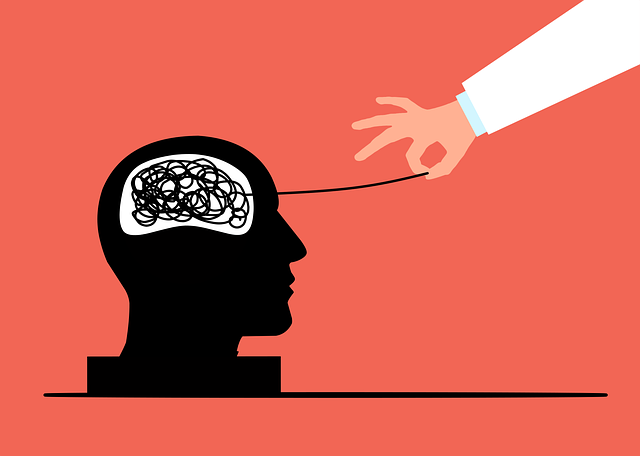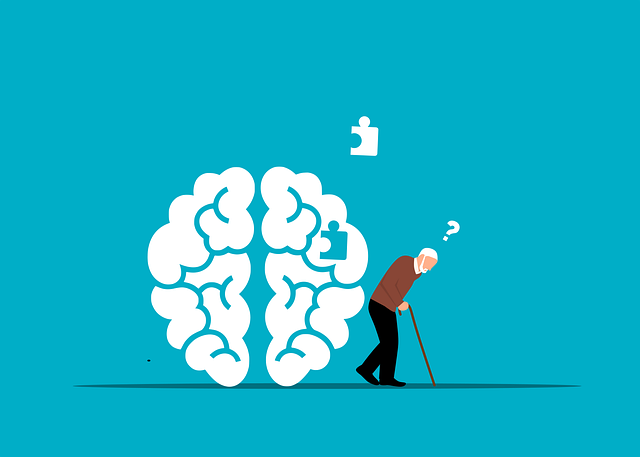Adolescent alcohol abuse, often driven by stress or emotional distress, poses significant risks to mental wellness and development. Effective treatment focuses on understanding underlying causes, building empathy through safe communication spaces, and providing crisis intervention guidance. Therapy, including cognitive-behavioral therapy (CBT), equips teens with healthy coping mechanisms, emotional intelligence, and resilience. Long-term support emphasizes relapse prevention and comprehensive approaches integrating mental health education, conflict resolution skills, and burnout prevention techniques. Cultural competency training ensures tailored, respectful care that aligns with each teen's unique background and beliefs.
Coping skills development is a vital aspect of adolescence, especially in mitigating and preventing alcohol abuse. This article delves into the complex world of adolescent alcohol abuse, highlighting its risks and impact on young lives. We explore the transformative power of therapy as a tool to equip teens with effective coping strategies. Furthermore, we offer practical insights for building healthy mechanisms and long-term support systems to foster recovery and overall well-being. Understanding these aspects is crucial in addressing alcohol abuse among adolescents through tailored therapeutic approaches.
- Understanding Adolescent Alcohol Abuse: Risks and Impact
- The Role of Therapy in Coping Skills Development for Teens
- Effective Strategies for Building Healthy Coping Mechanisms
- Long-term Support and Maintaining Recovery: A Comprehensive Approach
Understanding Adolescent Alcohol Abuse: Risks and Impact

Adolescent alcohol abuse is a growing concern with significant risks and impacts on mental wellness and overall development. Teenagers often turn to alcohol as a coping mechanism, seeking relief from stress, anxiety, or emotional distress. However, this behavior can lead to a vicious cycle of dependency and further exacerbate existing issues. Therapy for adolescent teens with alcohol abuse focuses on understanding the underlying causes, building empathy, and providing effective crisis intervention guidance.
Empathy-building strategies are crucial in fostering meaningful connections between teens and therapists. By creating safe spaces for open communication, mental health professionals can help adolescents process their emotions, improve decision-making skills, and develop healthier coping mechanisms. Crisis intervention guidance is also essential, teaching teenagers how to navigate high-risk situations and respond effectively when faced with peer pressure or emotional crises.
The Role of Therapy in Coping Skills Development for Teens

For teens struggling with alcohol abuse, therapy plays a pivotal role in developing effective coping skills. It provides a safe and supportive space for individuals to explore underlying issues, understand their triggers, and learn healthy ways to manage stress and emotions. Through various therapeutic approaches, adolescents can gain insights into their behaviors and develop personal strategies to resist the urge to turn to alcohol as a coping mechanism.
Incorporating cultural competency training for healthcare providers is essential in this context. By understanding the unique cultural backgrounds and perspectives of teenage clients, therapists can tailor their methods accordingly, ensuring that the therapy aligns with the individual’s values and beliefs. This personalized approach enhances engagement and the overall effectiveness of the treatment process. Additionally, Mental Health Education Programs Design can empower teens with knowledge about addiction, recovery, and available resources, fostering a sense of self-awareness and empowerment in managing their well-being. Conflict resolution techniques are also valuable tools, teaching adolescents how to navigate interpersonal challenges without resorting to substance abuse.
Effective Strategies for Building Healthy Coping Mechanisms

Building healthy coping mechanisms is essential for navigating life’s challenges and maintaining mental wellness. For adolescent teens struggling with alcohol abuse or other similar issues, developing effective strategies becomes even more crucial. Therapy plays a pivotal role in this process, offering a safe space to explore emotions and learn constructive ways to deal with stress. Cognitive-behavioral therapy (CBT), for instance, is widely recognized as an impactful approach, helping individuals identify negative thought patterns and replace them with healthier alternatives.
One powerful tool within CBT is mental wellness coaching, which focuses on enhancing emotional intelligence (EQ). By teaching teens to recognize and manage their emotions, these programs empower them to make better decisions and develop resilience. Additionally, burnout prevention techniques are integral to coping skills development. Encouraging self-care practices, setting boundaries, and prioritizing rest can significantly reduce stress levels and promote a sense of balance. Such strategies contribute to long-term well-being, enabling teens to overcome challenges without resorting to unhealthy coping mechanisms like substance abuse.
Long-term Support and Maintaining Recovery: A Comprehensive Approach

Long-term support is a cornerstone of maintaining recovery for adolescent teens struggling with alcohol abuse. It’s not just about overcoming initial addiction; it’s about fostering resilience to prevent relapse. Comprehensive approaches that integrate therapy, mental health awareness, and emotional well-being promotion techniques have proven effective. These strategies empower teens with conflict resolution techniques, helping them navigate challenging situations without resorting to substance abuse.
By providing a nurturing environment where teens can openly discuss their struggles and learn healthy coping mechanisms, long-term support networks play a vital role in their journey towards lasting recovery. This holistic perspective not only addresses the symptoms of alcohol abuse but also targets the underlying causes, ensuring that adolescents have the tools needed to thrive in a world free from addiction’s grasp.
Coping skills development is a critical component in addressing and preventing adolescent alcohol abuse. By understanding the risks and impact of underage drinking, utilizing therapeutic approaches tailored for teens, adopting effective strategies to build healthy coping mechanisms, and providing long-term support, we can empower young individuals to make better choices and maintain recovery. Therapy for adolescent teens alcohol abuse needs to be comprehensive, supportive, and accessible to effectively address this growing concern.












